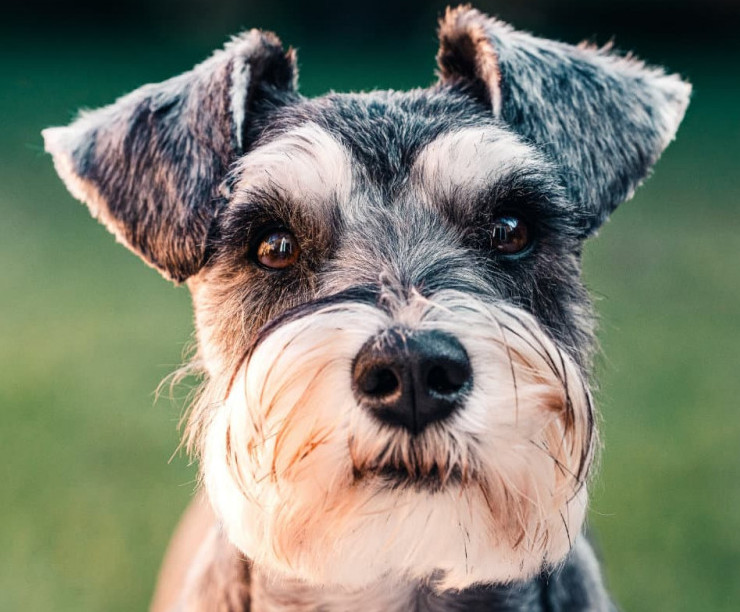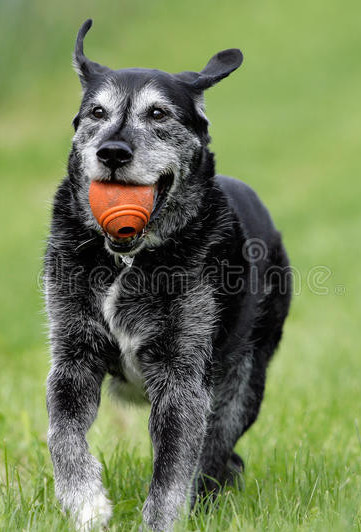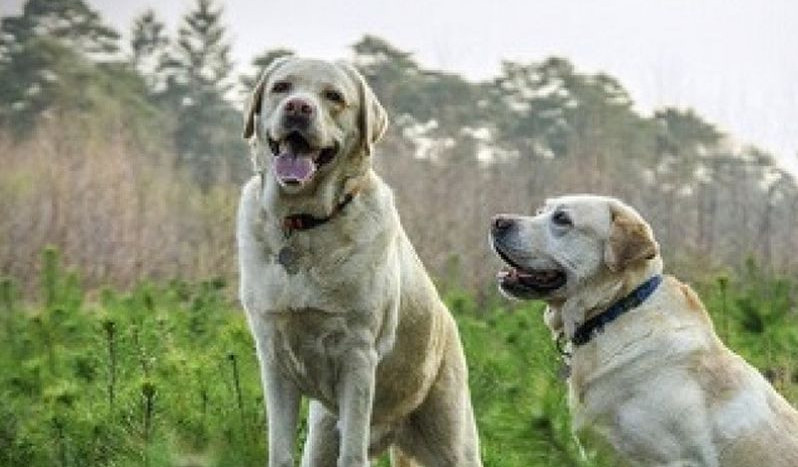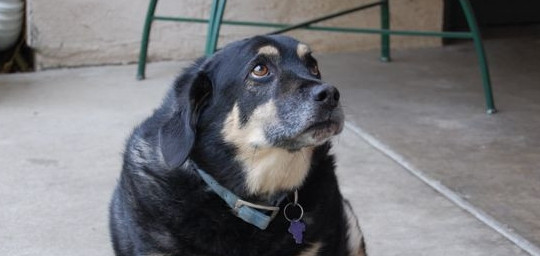
When Does a Dog Become a Senior?
Generally, it was presumed a dog becomes a senior after 7 years of age. However, the size of a dog must be considered. Larger dogs age faster than smaller dogs. Large breed dogs are considered a senior at 7 years old. In comparison, smaller canines become a senior at 10.
Also, the breed of a dog must also be considered since life expectancy differs among breeds. Based on this, a dog becomes a senior when it reaches 75% of its breed’s life expectancy. For example, a Golden Retriever has a life expectancy of 11 – 12 years. Therefore, it becomes a senior at 8 – 9 years old.
Why Choose an Older Dog?
When searching for the best choice of dog to add to your family and household, there are various factors to consider:
- Lifestyle?
- Children & Other Pets?
- Time Availability (for training, exercise, etc)?
While puppies are irresistibly cute and adorable, there are advantages to choosing a mature dog instead. They have grown into themselves, both physically and mentally, and have already passed the destructive puppy chewing and house training stage. The energetic exuberance of puppy hood have diminished along with the excessive digging, jumping, barking and leash restraint problems commonly associated with puppies and younger dogs.
Most mature dogs have also received some amount of training which can easily be assessed just by spending a little time together. Also, by spending some time together, it can be easily determined how socially interactive a senior dog is with people, children and other pets in your household.
An older dog provides all the companionship of younger dogs yet doesn’t require the constant supervision or high levels of daily exercise that puppies do. A mature dog enjoys a relaxed, more laid-back approach to life.
If adopting a senior dog is the choice for you, know that you are giving this dog a second chance. Whatever the reason a senior dog found themself in a shelter, they have known some hardship. By giving them a home, they finally get the love and care they deserve.
Signs That Your Dog Is Growing Old
The most easily detectable sign that your dog is aging, is graying of their fur, particularly on their face. Another is a slowing of their mobility and less physical stamina. Your dog’s eyesight may weaken, often accompanied with a bluish film over their eyes. Their sense of hearing could also be reduced.
As their age progresses, you may also notice behavioral changes. Their sleep pattern may change. They may experience a sense of confusion, hiding in unusual places, not responding when being called, etc.

Caring For A Senior Dog
1. Regular Health Check-Ups
Many veterinarians recommend that senior dogs be examined twice a year. This enables early detection of illness and deviation from normal, healthy standards. An invaluable tool in health maintenance is having blood screening lab work (blood work) done while your dog is in mid-life and in good health. This provides a baseline to which subsequent blood work taken in later years can be compared to identify changes which may require treatment or further testing.
Regular check-ups provide periodic monitoring of your dog’s weight. As dogs age, they become less active. This requires a diet to maintain a healthy weight and also provide joint health support if necessary. Weight management is for senior dogs is crucial. Overweight/obese dogs have a higher incidence of illnesses such as diabetes, heart disease, arthritis and cancer.
2. Be Observant of Changes in Behavior
As your dog ages, be observant of any changes in behavior. This may be a tell-tale signal of a health issue which needs veterinary attention. Changes in appetite, water consumption, stool or urinary habit, sleep pattern, and temperament may all be indicators of underlying health issues.
Also, be aware that diminished eyesight and hearing are common age-related afflictions requiring adjustments in your dog’s care and environment to ensure their safety. Supplements containing lutein are available for healthy eye support.
3. Arthritis Management
Arthritis is a common health issue for senior dogs, especially large breeds. In addition to prescribed medication from your veterinarian, over-the-counter supplements and specially formulated dog food are available to alleviate the discomfort of this condition. These contain joint support ingredients such as MSM, Glucosamine and Chondroitin. Talk to your veterinarian for their recommendation.
Overweight or obese dogs will benefit greatly by losing weight. Excess weight puts an additional strain on joints which worsens an arthritic condition.
Improvements in your home to accommodate your dog’s arthritis include rugs on slippery floors, orthopedic dog bed for comfortable sleep, ramps/stairs for access to furniture, vehicle ramps and food/water holders which elevate the dishes to a comfortable height.
4. Dental Care
It is highly recommended that your dog’s dental hygiene be a routine part of their grooming throughout their life. If this hasn’t been the case, your senior dog would likely suffer from oral disease with symptoms of bad breath, excessive drooling, gum inflammation/bleeding and tooth loosening/loss. This requires immediate veterinarian attention. Continued neglect will not only worsen your dog’s oral condition, but may also lead to heart, kidney and liver disease.
Teeth brushing, dental chews, dental wipes, water additives and food additives are ways to include dental hygiene into your grooming routine.
5. Lumps
It is not uncommon for dogs to develop fatty lumps under their skin, or lipomas, as they age. These are common and benign. However, similar types of growths pose a more dangerous threat. Therefore, all lumps should be evaluated by your veterinarian to determine if it’s benign or otherwise. This is especially true when a new lump appears, or if an existing lump grows or changes in shape, color or size.
6. Keep Your Dog Physically and Mentally Engaged
Even after your dog becomes a senior, it is very important to keep them both physically and mentally engaged. While the level of physical activity must be adjusted for their age and decreased stamina, appropriate exercise such as slower paced walks, must be continued to promote good health, movement and flexibility. The same is true for mental ability. Keep communicating and mentally engaging with your senior dog to encourage healthy brain function and alertness.
7. Diet Alterations
Dog food for senior small breed and senior large breed are available. These are formulated to support immune system, energy level, heart and kidney function and overall health in older dogs.
There are also supplements available especially formulated for senior dog care. Joint support supplements are very helpful in improving your senior dog’s mobility.
Consult with your veterinarian for their senior dog food and supplement recommendations.

Conclusion
Whether raising your senior dog from a puppy or acquiring them at a later life stage, they have been your loyal companion and unconditional best friend. They generously share their love and affection with us throughout their lives. In return, we must honor their loyalty and unwavering love by providing them with the best care and affection, especially during their senior years. Much love and kindness to all our senior dogs forever!